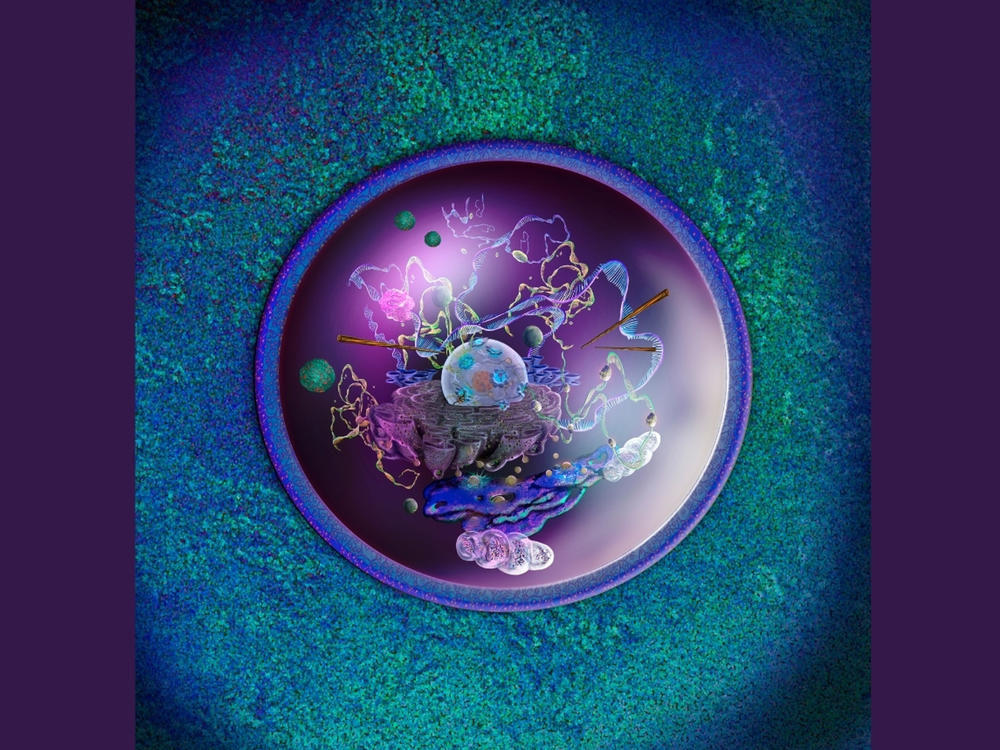Section Branding
Header Content
AI gets scientists one step closer to mapping the organized chaos in our cells
Primary Content
As artificial intelligence seeps into various areas of our society, it's rushing into others. One area it's making a big difference is protein science. We're talking the molecules that make our cells work. AI has hurtled the field forward by predicting what these molecular machines look like, which tells scientists how they do what they do — from processing our food to turning light into sugar.
Now, scientists at Google DeepMind have taken their protein prediction model to the next level with the release of AlphaFold3. It's an AI program that can predict the unique shape of proteins, as well as almost any other type of molecule a protein attaches to in order to function.
Producer Berly McCoy talks to host Emily Kwong about the potential impact and the limitations of this new technology. Plus, they talk about the wider field of AI protein science and why researchers hope it will solve a range of problems, from disease to the climate.
Have other aspects of AI you want us to cover? Email us at shortwave@npr.org.
Listen to Short Wave on Spotify, Apple Podcasts and Google Podcasts.
Listen to every episode of Short Wave sponsor-free and support our work at NPR by signing up for Short Wave+ at plus.npr.org/shortwave.
Today's episode was produced by Rachel Carlson. It was edited by Rebecca Ramirez. Berly McCoy checked the facts. Ko Takasugi-Czernowin was the audio engineer.

